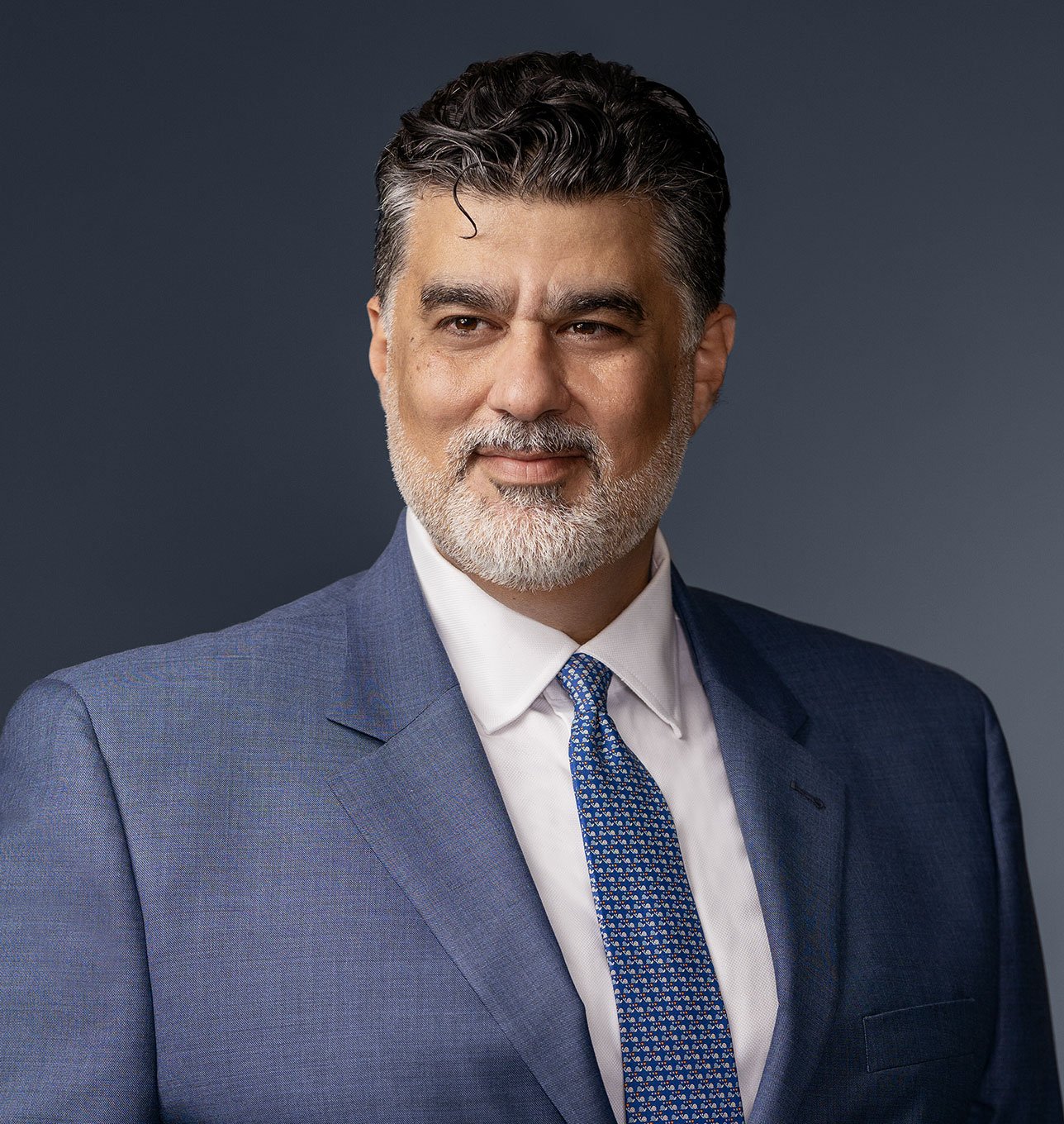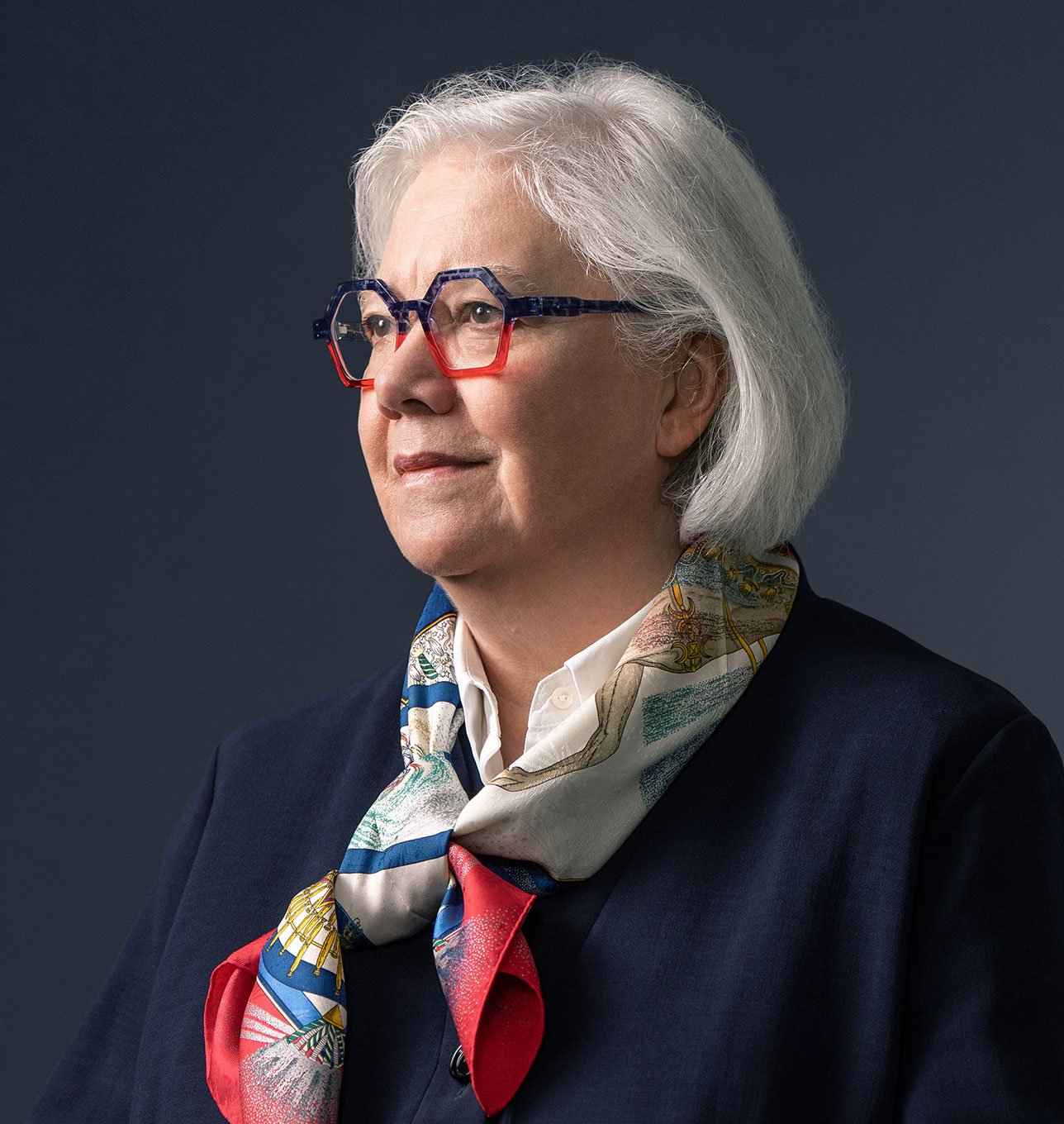enero 26 2024
Russia/Ukraine Sanctions Update - Month of January 2024
US Sanctions | EU Sanctions | UK Sanctions | Russia/Ukraine Sanctions | Other Notable Developments
- US Department of the Treasury Targets Price Cap Violation-Linked Shipping Company: On January 18, the Department of the Treasury’s Office of Foreign Assets Control (OFAC) designated a shipping company, Hennesea Holdings Limited, linked to a price cap violation. This action demonstrates US commitment to prohibit the import of crude oil and petroleum products of Russian Federation origin as part of an international coalition of countries, including the G7, the EU, and Australia. Read more >>
- US Department of Justice Arrests Businessman for Scheme to Illegally Export Semiconductors and Other Controlled Technology to Russia: On January 18, the Department of Justice arrested Ilya Kahn for his alleged involvement in a years-long scheme to secure and unlawfully export sensitive technology from the US for the benefit of a Russian business. The business was sanctioned by the US government following Russia’s unprovoked invasion of Ukraine in February 2022 and its clients include elements of the Russian military and the Federal Security Service, the main successor agency to the Soviet Union’s KGB. Read more >>
- US, Australia, and the UK Sanction Russian Cyber Actor: On January 23, OFAC, in coordination with Australia and the United Kingdom, designated Alexander Ermakov, a cyber actor who played a pivotal role in the 2022 ransomware attack against Medibank Private Limited, an Australian healthcare insurer. Read more >>
- US Department of State Acts in Response to DPRK-Russia Ballistic Missile Transfers and Testing: On January 11, the Department of State imposed sanctions under E.O. 14024 on three Russian entities and one individual involved in the transfer and testing of Democratic People’s Republic of Korea (DPRK) ballistic missiles for Russia’s use against Ukraine. The State Department also identified four aircraft, owned by the already US-designated Command of the Military Transport Aviation, as blocked property. This action follows the US Department of State’s statement, with the Ministers of Foreign Affairs of several countries, including the G7, condemning the DPRK’s export and Russia’s procurement of DPRK ballistic missiles, as well as Russia’s use of these missiles against Ukraine on December 30, 2023, and January 2, 2024. Read more >> and Read more >>
- US Secretary of the Treasury Meets with Prime Minister of Ukraine: On January 23, US Secretary of the Treasury, Janet L. Yellen, met virtually with Ukrainian Prime Minister, Denys Shmyhal. Secretary Yellen reaffirmed US support to Ukraine, reiterated the Biden Administration’s ongoing efforts to secure $11.8 billion in direct budget support as part of a US national security supplemental request before Congress, and underscored the importance of Congress acting on financial support for Ukraine as quickly as possible. Read more >>
- US Undersecretary for International Affairs Meets with Minister of Finance for Ukraine: On January 22, the Department of the Treasury’s Under Secretary for International Affairs, Jay Shambaugh, spoke with Ukrainian Minister of Finance, Minister Sergii Marchenko, to discuss US economic assistance to Ukraine. The parties discussed securing the $11.8 billion in direct budget support to Ukraine, which combined with other international support will enable Ukraine to continue defending itself and help maintain access to Ukraine’s $15.6 billion International Monetary Fund program. Read more >>
- US Secretary of State Meets with Ukrainian President Zelenskyy: On January 16, the Secretary of State, Anthony J. Blinken, and National Security Advisor, Jake Sullivan, met with Ukrainian President, Volodymyr Zelenskyy, in Davos, Switzerland. They discussed the importance of continued global assistance to support Ukraine as it fights for its freedom and sovereignty. They also spoke about efforts to support Ukraine’s economic resilience and recovery, including through private sector investment. The three additionally discussed ongoing anti-corruption reform efforts to bolster Ukraine’s economic recovery and continue its trajectory towards Euro-Atlantic integration. Secretary Blinken and National Security Advisor Sullivan strongly reiterated US support for Ukraine and its territorial integrity in the face of Russia’s illegal war of aggression. Read more >>
- President Biden Issues Statement on Russia’s Aerial Assault on Ukraine: On December 29, 2023, President Biden issued a statement on Russia’s launch of its largest aerial assault on Ukraine since the war began. President Biden condemned the massive bombardment that used drones and missiles, including missiles with hypersonic capability, to strike cities and civilian infrastructure across Ukraine. President Biden implored Congress to take urgent action to ensure the US continue sending Ukraine weapons and vital air defense systems, which Ukraine used to successfully intercept and destroy many of the missiles and drones launched by Russia. Read more >>
- EU Adds One Individual and One Entity to EU Sanctions List: On January 3, 2024, the EU introduced restrictive measures against the Russian company PJSC Alrosa and its CEO Pavel Alekseevich Marinychev consisting in asset freeze and travel ban measures. These designations complement the import ban on Russian diamonds included as part of the 12th package of sanctions adopted on December 18, 2023.Read more >> and Read more >>
- EU Looks to New Sanctions against Russia for Second Anniversary of War: The EU aims to impose a new round of sanctions on Russia next month to mark the second anniversary of invasion of Ukraine. Potential measures could include further listings, more trade restrictions and cracking down on Russia’s continued ability to circumvent sanctions, both through third countries and companies within the EU. The EU's Baltic members and Poland are repeating calls for sanctions on Moscow's nuclear sector and exports of liquefied natural gas, but other EU member states have so far rejected those demands. Other ideas on the table include possible restrictions on the movement of Russian diplomats around the Schengen Area, and on all remaining exports of aluminum to the EU.Read more >> and Read more >>
- Russian Aluminum Stored in London Metal Exchange (LME) Warehouses Increased over the Course of December: LME on-warrant stocks of Russian metal surged over the course of December. Although Western governments' restrictions on Russian aluminum did not pose much of a problem for the LME, the sanctions net is steadily tightening. In particular, extended sanctions cannot be excluded on the EU side with industry association European Aluminium calling on the European Commission to extend sanctions to cover primary metal. While the LME only trades primary aluminum ingot, the 12th package of sanctions adopted by the EU targets so far Russian imports of aluminum wire, foil, tube and pipe. The Federation of Aluminium Consumers in Europe argues however that with Europe 85% dependent on aluminum imports, smaller products producers need every supply option, not least Russian producer Rusal's low-carbon metal. Read more >>
- Netherlands Arrests 3 on Suspicion of Evading EU Sanctions against Russia: Dutch authorities arrested on January 9, 2024, three people as part of a multinational investigation into an international smuggling network that allegedly worked to evade EU-wide sanctions on Russia. Two of the suspects were administrators of a Dutch-registered company, set up in 2017, that exported technological and laboratory equipment with potential military purposes to Russia. Raids also carried out in Estonia, Latvia, Germany, and Canada. Read more >>
- Cyprus Makes Contribution in Increasing Sanctions Pressure on Moscow: Cyprus was once considered a primary source of foreign direct investment into Russia because of the sheer number of Russian companies based on the island, but sanctions have seen many firms re-domiciling. One of the latest was Russian banking group TCS Holding, which owns online Russian bank Tinkoff. Last year the International Consortium of Investigative Journalists detailed how financial enablers in Cyprus tried to shield oligarchs' assets from impending sanctions immediately after Russia's invasion, while a small number of Cypriots have personally been sanctioned by the US and Britain. The Cypriot government says it has 'zero tolerance' for sanctions busting and is receiving technical assistance from the United States to close any potential loopholes. Read more >>
- Russia Finds Way Around Sanctions on Battlefield Technology: An in-depth report by a US-Ukrainian research team found that Russian imports of battlefield goods sanctioned by the US and the EU totaled nearly $9 billion from January to October 2023, down just 10 percent from the level that preceded the full-scale invasion of Ukraine in February 2022. Detailed analysis of Russian trade figures reveals that Western companies supplied 48 percent of such battlefield components in the first 10 months of 2023 the report finds, above the 45 percent accounted for by China. US semiconductor giant Intel tops the list of the makers of battlefield goods obtained by Russia, followed by Huawei of China. Also in the top 10 are Analog Devices, AMD, Texas Instruments, IBM, and Dell. When it comes to the countries in which the components are made, sold, and shipped, China and Hong Kong are the dominant suppliers, confirming that Russia has managed to reconfigure its supply chains. Other leading conduits are Turkey and the United Arab Emirates. Read more >>
- China’s Advanced Machine Tool Exports to Russia Soar after Ukraine Invasion: Chinese shipments to Russia of an important class of advanced machine tools have increased tenfold since the full-scale invasion of Ukraine, with the country’s producers now dominating trade in high-precision computer numerical control (CNC) devices vital to Russia’s military industries. Russian imports of CNC tools from the EU, historically its main source, have dramatically fallen as restrictions have tightened since February 2022. The customs returns show Chinese-origin CNC devices made up 57 percent of Russian imports by value in July, up from just 12 percent before the war. They suggest Russia also continued to import substantial amounts of CNC tools made in Taiwan and South Korea. Read more >>
- EU Efforts to Use Russia’s Frozen Assets Make Slow Progress: EU countries fear adverse effects of transferring to Ukraine the Russian sovereign assets immobilized by western sanctions and are instead working on seizing only extraordinary profits that financial institutions are making by holding the assets. Countries like Germany, France and Belgium, where the bulk of the €210bn frozen in Europe is held, have been wary of moving from just ringfencing the profits being made at the financial institutions, to actually confiscating them. The European Central Bank has warned that touching the profits made by Euroclear, the central securities depository holding the assets in Belgium, could destabilize the financial system. Seizing the assets themselves would be even more risky. Some officials worry that Belgium, which has just assumed the rotating six-month presidency of the European Council and is leading the talks, might not be the best middleman. Read more >>
- EU Tables Reform Proposal for Ukraine Weapons Fund: According to an internal memo circulated to the EU member states, a reformed EU weapons fund for Ukraine should be used to incentivize European joint procurement and apply stricter reimbursement rules to factor in national bilateral donations to the war-torn country. The new push comes after EU leaders in December 2023 postponed the agreement to top-up the European Peace Facility, the off-budget funding mechanism used to reimburse member states for their weapons donations to Ukraine. At the time, some EU member states, especially Germany and France, requested to change the modalities of the fund to move from an incentives-based approach of depleting national stocks to a procurement-based one. Read more >>
- Brussels Prepares Concessions to Hungary Over Ukraine Aid: The European Commission is reportedly willing to bow to some of Hungary’s demands in order to secure a €50bn support package for Ukraine. Brussels has been working to find a solution to the Hungarian blockade since Prime Minister Viktor Orbán vetoed the EU package in December 2023. The issue is all the more pressing given that a stalemate in the US Congress means US support for Kyiv is also uncertain. Read more >>
- UK Government Designate Cyber Hacker: On January 23, the UK Government, in a coordinated effort with Australia and the US, designated a Russian-based cyber hacker under the Cyber (Sanctions) (EU Exit) Regulations 2020 Regime, for their involvement in the compromise of Medibank that resulted in the subsequent leak of sensitive medical records. The individual is Aleksandr Gennadievich Ermakov and they are now subject to an asset freeze and travel ban. Read more >>
- UK Department for International Trade Revises General Licence for Vessels: On January 18, the UK’s Department for International Trade revoked and replaced General Trade Licence Russia Sanctions – Vessels. Per Notice NTE 2024/02, the General Licence has been revised to include with its scope regulations relating to the import, supply and delivery of Schedule 3DA revenue generating goods as well as related services. Read more >>
- UK Government Amends One Entry on the UK Sanctions List under the Russia Regime: On January 15, the UK Government amended one entry on the Russia sanctions list relating to Svyatoslav Evgenievich Ostrovsky. This individual remains subject to an asset freeze and trust services sanctions. Read more >>
- UK Court Rejects Graham Phillips’ Sanctions Act Challenge: On January 12, the Administrative Court gave judgment in England’s first ever case to consider the relationship between financial sanctions and freedom of expression. Graham Phillips was sanctioned by the United Kingdom in July 2022 for producing propaganda videos from the Donbas region in Ukraine which were in favour of Russia and their invasion of Ukraine. Graham Phillips had challenged the UK’s decision to designate him on the grounds that (i) the UK Government did not have the power to impose financial sanctions on a person on account of their political views, and (ii) his designation was a disproportionate restriction on his right to freedom of expression. The challenge was rejected. Among other things, the Court founds that (i) Mr Phillips’ video content was propaganda in favour of the Russian invasion of Ukraine; (ii) the UK Government has the power to impose sanctions on an individual who supports or promotes policies or actions which destabilise Ukraine or undermine its territorial integrity, sovereignty and independence, including through acts of “expression”, and (iii) the financial sanctions imposed on Phillips were proportionate. Read more >>
- Ukraine and Britain Sign Security Agreement in Kyiv: On January 12, Ukrainian President Volodymyr Zelenskiy and British Prime Minister Rishi Sunak signed a new security accord between the two countries in Kyiv. Zelenskiy said it would remain in effect until Ukraine joined NATO, describing it as an "unprecedented security agreement." Read more >>
- ECJU Licensing Unit Publishes Notice on Good Practice for Export Licence Applications: On January 10, the Export Control Joint Unit (ECJU) published a notice which gives some reminders and helpful information for making export licence applications. Among other things, the notice provides guidance on the preparation of applications, End User and Stockist undertakings and applications, requests for information, amendments to applications and issued licences, timescales and contact information. Read more >>
- UK Makes Joint Statement with Other Nations on Russia’s Procurement and Use of Weapons from the DPRK: On January 10, the UK, along with France, Japan, Malta, the Republic of Korea, Slovenia, Ukraine, and the United States, issued a joint statement asserting that Russia’s procurement and use of weapons from the DPRK violates UN Security Council Resolutions. In the statement, the signatory nations allege that Russia’s 30 December 2023 and 6 January 2024 attacks on Ukraine were carried out with the use of weapons imported from the DPRK, and condemns these actions as they violate several UN Security Council resolutions that prohibit UN Member States from procuring arms from the DPRK and prohibit the DPRK from exporting arms. Read more >>
- UK Makes Statement on Humanitarian Aid in Ukraine at UN Security Council: On January 10, UK Ambassador Barbara Woodward made a statement at the UN Security Council estimating that more than 14.6 million Ukrainians will require humanitarian assistance in 2024. In the address, among other things Ambassador Woodward called on all UN Members to implement UN resolutions, and on Russia to (i) cease its trading in arms with the Democratic People's Republic of Korea (DPRK), (ii) implement all UNSC resolutions in full, and (iii) restate its commitment to the global non-proliferation regime. Read more >>
- OFSI Updates General Licence Relating to Subsidiaries of Certain Russian Banks: On January 2, OFSI updated General Licence INT/2022/1280876 to change to name of VTB Bank (Europe) SE to OWH SE within the definition of an “EU subsidiary” under the general licence. The general licence authorises certain activities involving the UK, Guernsey, and EU subsidiaries of certain Russian banks subject to certain notification and record-keeping requirements. Read more >>
- Russia Received Components Worth $2.9 bln from West Despite Sanctions, Kyiv Says: On January 17, the Ukrainian president's office claimed that Western companies supplied Russia with $2.9 billion worth of components that can be used for military production in the first 10 months of 2023, despite sanctions measures put in place against Russia. Ukraine has been pressing its allies to tighten sanctions on Russia and close export control loopholes, saying that Moscow is still able to import military goods for its war in Ukraine. Read more >>
- Russia Designates One of Its Most Popular Writers a 'Foreign Agent' over His Ukraine Stance: On January 12, Russia's Ministry of Justice designated one of the country's most popular fiction writers a "foreign agent" because of his opposition to the war in Ukraine. Boris Akunin, the pen name of Georgian-born Grigori Chkhartishvili, was deemed to have unacceptable anti-Russian views. Read more >>
- Ukraine Extends Sanctions to 57 Individuals and 134 Companies: The sanction lists were updated based on the Orders of the President of Ukraine No. 850/2023 and 851/2023 dated December 23, 2023, as well as No. 877/2023 dated December 30, 2023. Read more >>, Read more >> and Read more >>
- Ukraine Adds 2 Companies to the List of the Sponsors of War: In January 2024, Ukrainian Anti-Corruption Bureau added the Swedish company Elektriska Svetsnings-Aktiebolaget (ESAB) and the Lithuanian company Viciunai Group (VICI) to the list of international sponsors of war. It is reported that both companies remained in the Russian market and continue to pay significant contributions into the Russian budget. Read more >>
- Russia Extends the Ban on Truck Cargo Transportation for Foreign Cargo Companies: The ban on international truck cargo transportation, imposed by Russia in September 2022, was extended for an indefinite period. The ban covers bilateral and transit cargo transportation by companies registered in the EU, the UK, Norway, and Ukraine. Read more >>
- Russia Extends the Ban on Export of Foreign Machinery and Equipment: On December 23, 2023, the Russian Government extended the ban on export of certain goods and equipment from Russia until the end of 2025. The initial ban was introduced in March 2022 and covers technological and medical equipment, agricultural machinery, electrical equipment, turbines, nuclear reactors, fiber-optic cables, certain types of aircraft, radar instruments, batteries, metal processing machines, etc. Read more >>
- Russia Extends the Parallel Import Mechanism for 2024: The government has decided to extend the parallel import mechanism for 2024. However, the list of goods supplied under the regime will be gradually reduced. The parallel import mechanism allows Russian companies to import products without the consent of the copyright holder. It has been operational in Russia since summer 2023. The list of goods subject to parallel import includes products and materials from multiple foreign companies that refused to supply their products to Russia. Read more >>
- Russian Court Prohibits Russian Patent Agency to Terminate Licence Agreements to Carlsberg Beer Trademarks: The Arbitration Court of St. Petersburg and the Leningrad Region prohibited Rospatent from terminating the rights to use the Carlsberg and Grimbergen brands by the Baltika brewing company under license agreements. Earlier in July 2023, the Russian Government seized control over the Russian assets of Carlsberg, including Baltika. It was reported that before the seizure, the managers of Baltika attempted to transfer the rights for trademarks in Russia to foreign companies of Carlsberg. Read more >>
- The Fridman and Aven Holding Demands $1 Billion in Compensation from Ukraine: The ABH holding, registered in Luxembourg, whose minority shareholders include Russian businessmen Mikhail Fridman and Petr Aven, filed a lawsuit with the International Center for the Settlement of Investment Disputes (ICSID) against Ukraine for more than $1 billion due to the nationalization of Sense Bank (formerly "Alfa Bank Ukraine"). The bank was nationalized in summer 2023. The Friedman Foundation accused Ukraine of nationalizing the former Alfa Bank Ukraine through “corporate raiding and military profiteering.” Read more >>
- Russia Recognizes Unilateral Change of Domicile of Legal Entities without Relevant Changes in Foreign Commercial Registers: In January 2024, Russia recognized change of domicile of three international companies, which applied for registration in Russian special economic zones, disregarding the fact that the companies remain to be registered as commercial entities abroad and were not excluded from the commercial registers of the respective countries. The decision was enacted by the Order of the President of Russia No. 1 dated January 3, 2024. It creates a precedent of dual domicile of the same legal entity in different states. Read more >>
- Audit of Damages Inflicted by Foreign Shareholders to Sakhalin-2 Project Will Cover the Refusal to Supply Russian Gas: The audit of the potential damages inflicted by foreign shareholders to Sakhalin-2 oil extraction project, will cover not only financial, environmental, and technological issues, but also the damage caused to Gazprom by refusal to accept the new system of payments for Russian gas. The audit was started in summer 2022 and targets Shell as a former foreign shareholder in Sakhalin-2. In June 2022, Gazprom stopped gas supplies to Shell (Germany) due to its refusal to switch to payment in roubles. Read more >>
- Russia Bans Freezing of Assets in Its Type S Bank Accounts Belonging to Foreign Residents: On January 3, 2024, Russia banned freezing orders and interim injunctions in respect of the bank accounts of type S. The bank accounts of such type are opened by Russian institutions in the name of foreign residents and are used to accumulate funds, which cannot be transferred to foreign owners. Read more >>
- Grabbing $300 bln of Russian Assets Is No Panacea, West Cautions in Davos: On January 17, at the World Economic Forum in Davos, Western officials said that they were open to the idea of confiscating $300 billion of Russian assets to help Ukraine, but cautioned that the devil was in the legal detail and that, even if it could be done, it would be no panacea for Ukraine. Read more >>
- Zelenskiy Counts on More Western Defence Aid for Ukraine in Next Two Months: On January 20, Ukrainian President Volodymyr Zelenskiy revealed in his nightly video address that he expected a number of new Western defence packages for Ukraine to be signed this and next month, pursuant to the signing of new “strong bilateral agreements.” Read more >>
- Russia to Consider Law on Property Confiscation on Grounds of Spreading Misinformation, Incitement, and Other National Security Offenses: On January 20, Vyacheslav Volodin, speaker of the State Duma, announced that Russian lawmakers have prepared a bill allowing for the confiscation of money and property from people who spread "deliberately false information" about the country's armed forces. The measure would also apply to those found guilty of what he described as other forms of betrayal including: "discrediting" the armed forces; calling for sanctions against Russia; or inciting extremist activity. Read more >>
- Ukraine Plans to Close the Borders for All Russian Transport for 50 Years: On January 19, the Cabinet of Ministers of Ukraine proposed new sectoral sanctions against Russia, which provide for a 50-year ban on transport connections with Russia. The ban will cover prohibition of direct air traffic, including the use of Ukrainian airspace, for all aircraft owned or operated by Russian companies, ban on the entry of cars, trucks, railcars, locomotives and vessels registered in Russia. Before entering into force, the proposal has to be approved by Ukrainian Security Council, Parliament and the President. Read more >>
- Australia Sanctions Russian National Accused of Hacking in Medibank Data Leak: On January 24, Australia publicly named and imposed cyber sanctions on a Russian national, Aleksandr Ermakov, for his alleged role in a 2022 ransomware attack; Australia’s first use of the penalty. The attack stole sensitive personal data from 9.7 million customers of Medibank, one of Australia’s largest private health insurers. Read more >>
- Japan and US agree to Maintain Sanctions on Russia: On January 23, Japan and the US agreed to continue to work with each other in maintaining sanctions against Russia and supporting Ukraine, in line with an agreement by the G7. Read more >>
- Taiwan Expands Russian Sanctions to Stop Tech Being Used for Weapons: On December 26, Taiwan expanded a list of sanctioned goods for Russia, and its ally Belarus, in response to Russia's invasion of Ukraine to prevent Taiwanese high-tech goods from being used for military purposes. The expanded sanctions list includes equipment for making semiconductors, the production of which Taiwan is a world leader in, as well as certain chemicals and medicines, adding to previous announcements which already targeted the chip industry. Read more >>
For previous weekly updates, please visit our webpage.








